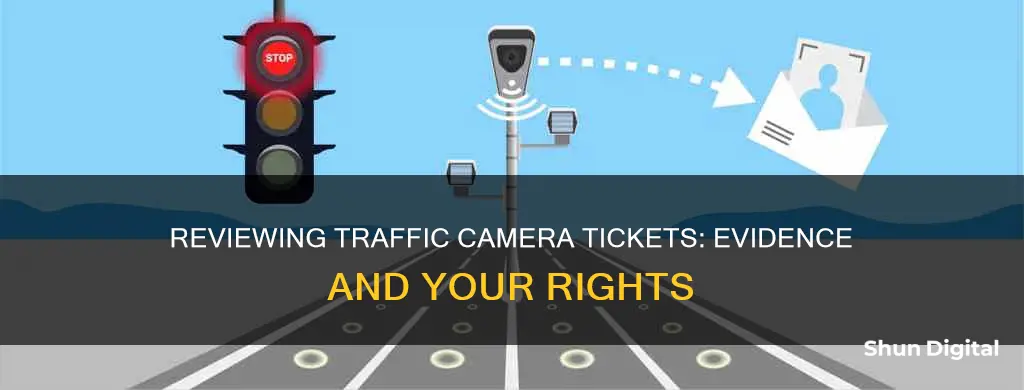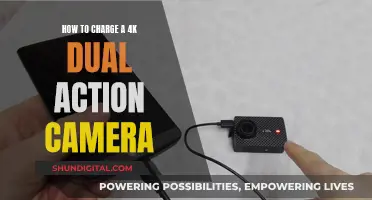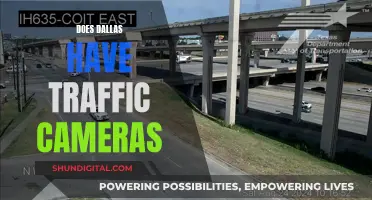
Receiving a traffic camera ticket can be frustrating and expensive, but it's important to know that you have the right to contest the citation if you believe it was issued unfairly. The process may seem intimidating, but understanding the necessary steps can greatly improve your chances of successfully disputing the ticket. Before contesting the ticket, it's crucial to carefully review all the information provided, including the date, time, location, and alleged violation. It's also essential to verify the accuracy of any images or video evidence, ensuring that your vehicle is clearly identified. In some cases, you may need to request access to the footage or images captured by the traffic camera. This process can vary depending on the location and type of footage. When reviewing the evidence, pay close attention to details such as the clarity of the images, the visibility of your license plate, and whether there is identifiable footage of the driver. Additionally, checking the maintenance records and calibration certifications of the camera equipment can be crucial in building your defence.
| Characteristics | Values |
|---|---|
| Check ticket details | Date, time, location, driver, and owner of the car |
| Understand the violation | Research the specific laws, regulations, and penalties |
| Gather evidence | Photographs, videos, eyewitness statements, technical issues with the camera |
| Review camera maintenance | Maintenance records, calibration certifications, and equipment accuracy |
| Plead not guilty | By mail, online, or in-person at arraignment |
| Request discovery | Officer's notes, documents, radar calibration records, videos, and photos |
| Challenge evidence | Lack of foundation, authenticity, or admissibility (e.g., hearsay) |
What You'll Learn

Check the ticket details: date, time, location, and alleged violation
When you receive a traffic ticket, it's important to carefully review the details to understand the violation you're being charged with. Here are some steps to follow when checking the ticket details: date, time, location, and alleged violation:
- Date and Time: Confirm the date and time of the alleged violation. This information is crucial as it allows you to reconstruct the events and determine if you were indeed driving the car at that specific time. It's important to note that camera tickets are usually sent to the owner of the car, so ensure that you were the driver during the incident.
- Location: Verify the location specified on the ticket. This information will help you recollect the incident and determine if there were any unique circumstances or factors that could impact your case.
- Alleged Violation: Understand the specific violation you're being charged with. Common traffic violations include running a red light, speeding, driving with an expired license, or having broken equipment. Knowing the alleged violation will help you research the applicable laws and build your defence.
- Vehicle Identification: Check if the images or video evidence clearly show the violation and accurately identify your vehicle. This is essential, as you may have a defence if there is no clear evidence of your vehicle committing the violation.
- Driver Identification: If you were not the driver at the time of the incident, you may need to identify the actual driver as part of the appeal process. This is an important step, especially if the ticket is issued to the vehicle's registered owner.
By carefully reviewing and checking these details, you can gain a clear understanding of the charges against you and start building your defence or appeal process. It's important to make notes, gather evidence, and seek legal advice if needed to protect your rights and ensure a fair outcome.
Fight Camera Tickets: Know Your Rights and Beat the System
You may want to see also

Research the violation and relevant laws
When reviewing traffic camera ticket evidence, it is important to research the violation and relevant laws. This involves understanding the specific traffic laws and regulations applicable in your state or jurisdiction. For example, in New York, red light camera tickets are treated like parking violations, holding the registered owner of the vehicle liable rather than the driver. On the other hand, some states, such as New York, limit speed cameras to specific areas like school zones.
It is crucial to make note of the exact code section you are cited for violating. Read and understand the law, including its elements and associated penalties. Ensure that the penalties listed on your ticket match those outlined in the code section. Remember, the burden of proof lies with the prosecution, who must establish that you violated each element of the law.
Additionally, familiarize yourself with any legal requirements and potential penalties for the violation. This knowledge will empower you to build a solid defense for your case. You can also research case law and appellate court decisions related to traffic camera tickets in your city or county. For instance, in some jurisdictions, a red light camera photo may be considered hearsay and might not be admissible as evidence.
To strengthen your case, gather any evidence that supports your claim of innocence. This may include photographs, video footage, eyewitness statements, or technical issues with the camera or traffic light. If you believe the yellow light duration was insufficient, collect data to support this claim. Understanding the specific laws and regulations will enable you to effectively challenge the ticket and build a robust defense.
Understanding Raw Image Files in Photography
You may want to see also

Gather evidence: photos, videos, witness statements, etc
When it comes to traffic tickets, gathering evidence is crucial for building a strong case. Here are some detailed steps to help you gather the necessary evidence:
Photos and Videos:
Request any photographic or video evidence from the relevant law enforcement agency. In many cases, traffic tickets are issued based on camera footage or officer-taken photos, so obtaining these can be essential. Review the images carefully and look for any discrepancies or issues, such as blurry images or unclear license plates, as this can form a basis for your defence.
Witness Statements:
If there were any eyewitnesses to the incident, be sure to get their statements. Witness accounts can provide valuable insights and help corroborate your version of events. Ask witnesses to provide detailed accounts of what they saw, heard, or experienced during the incident, and be sure to get their contact information for future reference.
Your Own Testimony:
Prepare your own statement by reconstructing the scene and recalling the details of the incident. Note down specific details such as the date, time, location, and any relevant circumstances. For example, if you were making a legal right turn on a red light when the camera took the photo, this could be crucial to your defence.
Technical Issues:
If the traffic ticket involves a red light camera, check the maintenance records and calibration certifications of the camera equipment. Ensure that the camera meets the required standards and that it was functioning properly at the time of the alleged violation. Any issues or discrepancies found can be used as evidence to support your case.
Other Evidence:
Gather any other relevant evidence that may support your claim. For instance, if you believe the yellow light duration was too short, collect data or expert opinions to support this claim. You can also look for any technical issues or malfunctions with the camera or other equipment used.
Remember to keep records of all your evidence, including dates, times, and relevant contact information. This will help ensure a thorough and organised approach to building your case.
Understanding Time-Lapse Mode on Trail Cameras
You may want to see also

Review camera maintenance and calibration records
When disputing a traffic camera ticket, it is important to review the camera's maintenance and calibration records. These records can provide crucial insights into the reliability and accuracy of the camera system. Here are some steps and considerations to guide you through the process:
- Obtain Maintenance and Calibration Records: Contact the local police department or the law enforcement agency responsible for the camera. Request detailed maintenance and calibration records for the specific camera in question. This may include records of regular maintenance checks, calibration dates, and any issues or repairs addressed.
- Review Records for Accuracy and Compliance: Carefully examine the maintenance and calibration records to ensure the camera was properly maintained and calibrated. Look for any discrepancies or gaps in the records. Verify that the camera's accuracy was tested and certified within a reasonable timeframe before your ticket was issued.
- Identify Potential Issues: Inaccurate or incomplete maintenance and calibration records can raise doubts about the camera's reliability. Look for signs of improper maintenance, infrequent calibration, or a lack of adherence to established standards. Any issues or irregularities in the records may serve as evidence to challenge the ticket.
- Compare with Applicable Standards: Research and understand the specific standards and requirements for camera maintenance and calibration in your jurisdiction. Compare these standards with the information provided in the records. If the camera's maintenance or calibration falls short of these standards, it could be grounds for disputing the ticket.
- Analyze Timing of Maintenance and Calibration: Pay close attention to the dates of maintenance and calibration activities. If the camera's accuracy was not recently verified or if calibration records are outdated, it may cast doubt on the reliability of the camera's evidence.
- Consider Expert Testimony: If possible, consult with experts in the field of traffic camera systems or similar technology. They can provide insights into the typical maintenance and calibration procedures and help identify any potential issues or discrepancies in the records.
- Cross-Reference with Other Evidence: Evaluate the maintenance and calibration records alongside other available evidence, such as photographs, video footage, or witness statements. Look for any inconsistencies or contradictions that may weaken the prosecution's case.
- Prepare Your Argument: If you find issues with the camera's maintenance and calibration records, construct a clear and concise argument highlighting these problems. Explain how the records indicate potential inaccuracies or unreliability in the camera system. Be prepared to present your argument and supporting evidence during your hearing or appeal process.
By thoroughly reviewing and analyzing the camera maintenance and calibration records, you can identify potential weaknesses in the prosecution's case and strengthen your own defense when disputing a traffic camera ticket.
The Making of the First Kodak Camera
You may want to see also

Prepare a defence strategy: technical or identity
Technical defence strategy
If you want to fight a traffic ticket, you should put up a strong legal defence supported by the right evidence. Here are some steps to take:
- Reference your citation: Understand the traffic law you are accused of violating, which will help you select an effective defence.
- Dispute the officer's opinion: If you received a ticket where the officer needed to exercise personal judgment, you can challenge that judgment. For example, if you got a ticket for an unsafe lane change, you can argue that your lane change was safe given the weather and traffic conditions.
- Dispute the officer's evidence: If you received a ticket for a clear-cut infraction like running a stop sign, you can question whether the officer saw you perform the action. You can present evidence, such as eyewitness statements or diagrams, to support your argument.
- Present evidence of a mistake: For certain tickets, you can present evidence that you made a "mistake of fact", meaning you made a mistake beyond your control or honestly and reasonably believed you were following the law. For example, if lane markers were so worn down that you couldn't see them, you could argue that you made a mistake of fact.
- Argue that circumstances justified your actions: Instead of disputing the ticketing process, you can admit to illegal driving but present information that deems it justified. For instance, if you were speeding to pass a possibly drunken driver, you can argue that you were trying to keep yourself safe and avoid an accident.
Identity defence strategy
If you receive a traffic camera ticket, it is sent to the owner of the car, not the driver. Therefore, you should:
- Check the date, time, and location of the ticket: Make sure you were actually driving the car when the ticket was issued.
- Review the photos: Confirm that it is your car in the photo and that the photo is clear. Blurriness can be a defence if the license plate isn't clearly visible.
- Plead not guilty: You must plead not guilty if you want to dispute the ticket and cannot pay the fine.
- Request a formal hearing: Demand a full formal hearing or trial when you plead not guilty.
- Request production of documents: Call the local police department to request copies of photos and maintenance records for the camera and traffic light system.
- Research the applicable law: Look for cases in your city or county about traffic cameras and see if any appellate court decisions have ruled on the legality of traffic camera tickets.
Louisiana Speeding Camera Tickets: Do You Have To Pay?
You may want to see also
Frequently asked questions
First, carefully review all the information provided on the ticket. Check for accuracy in the date, time, location, and the alleged violation. Make sure any images or video evidence clearly show your vehicle.
Research the specific laws and regulations in your area. Familiarize yourself with the legal requirements and the potential penalties for this violation. Gather any evidence that supports your claim of innocence, including photographs, video footage, eyewitness statements, or any technical issues with the camera.
Check the camera’s maintenance records and calibration certifications. If you discover any issues with the camera’s maintenance or calibration, this can be used as evidence to contest the ticket.
Plead not guilty by writing to your traffic court. If you have to attend an arraignment, request a formal hearing. While you’re waiting for your hearing, research the law in your area to build a legal defense.







